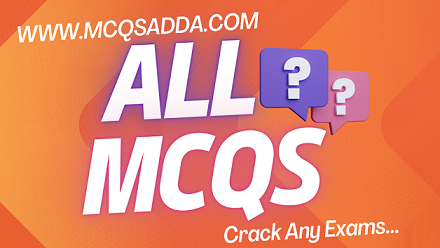Prev 1 2 3 4 5 Next
1. What is the part of the sentence which denotes the person or thing about which something is said?
A. Predicate
B. Subject
C. Phrase
D. Clause
ANSWER:B
SOLUTION :The part of the sentence which denotes the person or thing about which something is said, is called the subject of the sentence. For example, Mili sings a song. Here, Mili is the subject.
2. Pick out the clause in the following sentence:
Neha played when evening came.
A. Neha played
B. Played when evening
C. When evening came
D. Evening came
ANSWER:C
SOLUTION: In the sentence, the group of words ‘when evening came’ make some sense, but it doesn’t make complete sense. It however, has a subject (evening) and predicate (came when) of its own. Such a group of words is called a clause.
3. Pick out the phrase in the sentence:
Monica played at sunset.
A. Monica
B. Monica played
C. Played at sunset
D. At sunset
ANSWER:D
SOLUTION:
The phrase in the sentence is ‘at sunset ‘. The group of words ‘at sunset ‘ makes some sense but does not make complete sense. Such a group of words is called a phrase.
4. Which of these is not a type of sentence?
A. Simple
B. Continuous
C. Compound
D. Complex
ANSWER:B
SOLUTION: Sentences can be broadly classified into three types. They are : Simple sentences, Compound sentences and Complex sentences.
5. What is a sentence with one principal clause and one or more subordinate clauses called?
A. Compound sentence
B. Complex sentence
C. Simple sentence
D. Principal sentence
ANSWER:B
SOLUTION:A sentence with one principal clause and one or more subordinate clauses is called a complex sentence.
6. Which of these is not a type of subordinate clause?
A. Adverb
B. Verb
C. Adjective
D. Noun
ANSWER:B
SOLUTION : The subordinate clause can be divided into three types. They are: Adverb clause (Eg: Call me when you’ve finished your homework.), Adjective clause (Eg: The street in which he lives, is very safe.) and Noun Clause (Eg: Your body digests whatever you eat.).
7. Fill in the blank with an adjective clause :
The cricket bat ___________ is mine.
A. With a broken handle
B. Which has a broken handle
C. And a broken handle
D. With a broke handle
ANSWER:B
SOLUTION:
The group of words ‘which has a broken handle’ describes the cricket bat and does the work of an adjective. It contains a subject and predicate of its own. It is, therefore, an adjective clause.
8. Choose the correct statement:
A. I’ll write a letter when I will reach Mumbai.
B. I’ll write a letter when I reach Mumbai.
C. I’ll write a letter as I reach Mumbai.
D. I’ll write a letter when I shall reach Mumbai.
ANSWER:B
SOLUTION:
The correct statement is : I’ll write a letter when I reach Mumbai. When we refer to the future in an adverbial clause of time, we normally use the simple present tense ( not will or shall).
9. Which of these does not come under transformation of sentences?
A. Changing active voice into passive voice.
B. Changing passive voice into active voice.
C. Changing affirmative sentences into negative sentences.
D. Changing interrogative sentences into assertive sentences and their reverse.
ANSWER:B
SOLUTION:Transformation of sentences have various forms. These include : Changing active voice into passive voice, changing affirmative sentences into negative sentences, changing interrogative sentences into assertive sentences and their reverse, etc..
10. Which of these is not a type of sentence?
A. Assertive
B. Interrogative
C. Complicated
D. Imperative
ANSWER:C
SOLUTION:
There are four kinds of sentences. They are : Assertive sentence, interrogative sentence, imperative sentence and exclamatory sentence.


